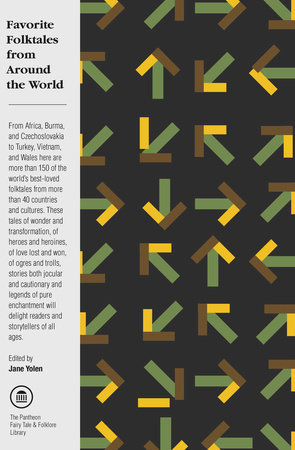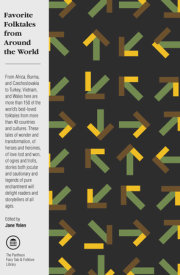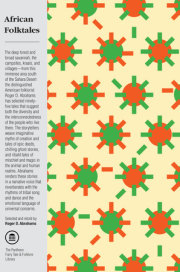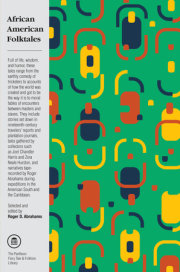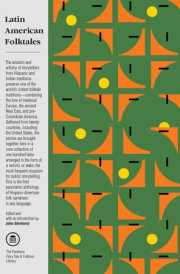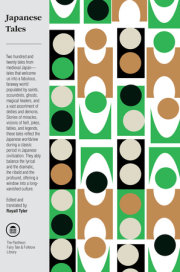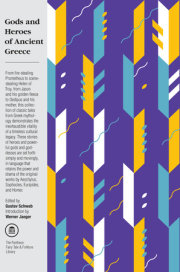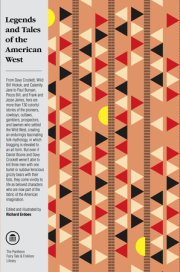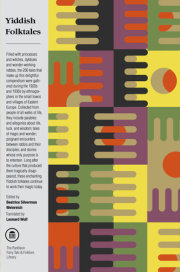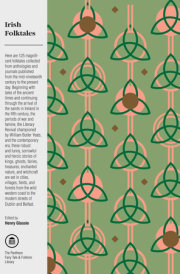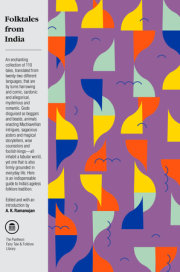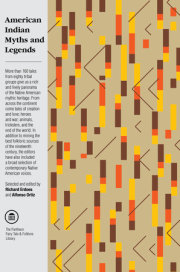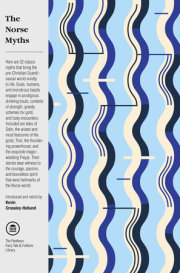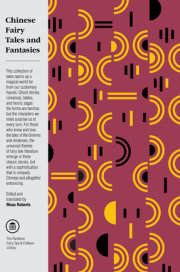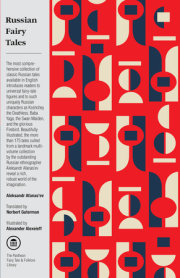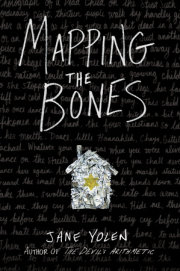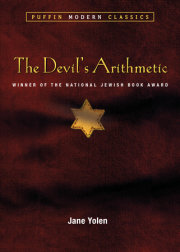THE MAN WHO HAD NO STORY
Ireland Well, there was a man down here is Barr and Ghaoith a long time ago and his name was Brian Ó Braonacháin. The trade that he had was cutting rods, making baskets of them, and selling them in Glenties and in Dunloe and in Fintown and everywhere he could get them sold.
But one year he was down here and there wasn’t a single rod in the whole of Barr and Ghaoith that he hadn’t cut, made baskets of, sold, and then spent the money.
Those were bad times—the English were in power and they wouldn’t let the Irish earn a single penny in any way. And Brian didn’t know what to do.
But in those days there was a little glen outside of Barr and Ghaoith that they called Alt an Torr and there were remarkably fine rods growing there. But nobody dared cut any rods there, for everyone made out that it was a fairy glen.
But one morning Brian said to his wife that if she made him up a little lunch he would go out and cut the making of a couple of baskets and perhaps no harm would come to him.
The wife got up and made up a lunch for him. He put it in his pocket and he took a hook and a rope under his arm.
He went out to the glen and he wasn’t long in the glen until he had cut two fine bundles of rods.
When he was tying them together so that he could carry them with the rope on his back, a terrible fog started to gather around him. He decided that he would sit down and eat his lunch and perhaps the fog would clear. He sat down and he ate the lunch he had with him and when he had finished eating it was so dark that he could not see his finger in front of him.
He stood up and he got terribly scared. He looked to the east and he looked to the west and he saw a light. Where there is light there must be people, he thought, and he headed for the light. And he tripped and fell the whole time, but in the end he came up to the light. There was a big long house there. The door was open and there was a fine light coming out of the window and the door.
He put his head in the door and an old woman was sitting in the corner and an old man on the other side of the fire. Both of them saluted Brian Ó Braonacháin from Barr an Ghaoith and wished him welcome, and they asked him to come up and sit in at the fire.
Brian came up and he sat in at the fire between the pair of them. They talked for a while. But he had not been sitting there long when the old man asked him to tell a fairy tale.
“That is something that I never did in all my life,” said Brian, “tell a story of any kind. I can’t tell Fenian tales or fairy tales of any kind.”
“Well,” said the woman, said she, “take that bucket and go down to the well below the house and fetch a bucket of water and do something for your keep.”
“I’ll do anything,” said Brian, “except tell a story.”
He took the bucket, went down to the well and filled it with water from the well. He left it standing on the flagstone beside the well, so that the water would run off it, before he brought it in. But a big blast of wind came and he was swept off up into the sky. He was blown east and he was blown west and when he fell to the ground he could see neither the bucket nor the well nor anything at all.
He looked around and he saw a light and he made out that where there was light there be people and he headed for the light. He tripped and fell the whole time, it was so dark. But at last he came to the light. There was a big long house there, far bigger than the first house, two lights in it and a fine light out of the door.
He put his head in the door, and what was it but a wake-house. There was a row of men sitting by the back wall of the house and a row of men sitting by the front wall of the house and up at the fire there was a girl with curly black hair sitting on a chair. She saluted and welcomed Brian Ó Braonacháin from Barr an Ghaoith and she asked him to come up and sit beside her on the chair.
Brian came up and he sat beside her on the chair and very shy he was, too. But he had not been sitting long when a big man who was in the company stood up.
“It is a very lonely wake we are having here tonight,” said he, “a couple of us must go to get a fiddler, so that we can start dancing.”
“Oh,” said the girl with the curly black hair, “you don’t need to go for any fiddler tonight,” said she, “you have the best fiddler in Ireland among you here tonight,” said she,” Brian Ó Braonacháin from Barr an Ghaoith.”
“Oh, that is something I never did in my life,” said Brian, “play a tune on a fiddle, and there is no music or singing or fiddling of any kind in my head.”
“Oh,” said she, “don’t make me a liar, you are the very man who can fiddle.”
Before Brian knew he had the bow and fiddle in his hand and he played away and they danced away, and they all said that they had never heard any fiddler playing a tune on a fiddle better than Brian Ó Braonacháin from Barr an Ghaoith.
The big man who was in the company stood up and said that the dancing must stop now, “A couple of us must go for the priest, so that we can say Mass,” said he, “for this corpse must go out of here before daybreak.”
“Oh,” said the girl with the curly dark hair, “there is no need to go for any priest tonight, the best priest tonight, the best priest in Ireland is sitting here beside me on the chair, Brian Ó Braonacháin from Barr an Ghaoith.”
“Oh, I have nothing of a priest’s power or holiness,” said Brian, “and I do not know anything about a priest’s work in any way.”
“Come, come,” said she, “you will do that just as well as you did the rest.”
Before Brian knew he was standing at the altar with two clerks and with the vestments on him.
He started to say Mass, and he gave out the prayers after Mass. And the whole congregation that was listening said they never heard any priest in Ireland giving out prayers better than Brian Ó Braonacháin,
Then the corpse was placed in a coffin outside the door and four men put the coffin on their shoulders. They were three fairly short men and one big tall man and the coffin was terribly shaky.
“One or two of us,” said the big man who was in the company, said he, “must go for a doctor so that we can cut a piece of the legs of that big man to make him level with the other three.”
“Oh,” said the girl with the curly black hair,” you don’t need to go for any doctor tonight, the best doctor in Ireland is here among you tonight, Brian Ó Braonacháin from Barr an Ghaoith.”
“Oh, that is something I never did in my life,” said Brian, “doctoring of any sort. I never got any doctor’s schooling at all.”
“You’ll do that just as well as you did the rest,” said she.
The lances were given to Brian and he cut a piece off the big man’s legs, under his knees, and he stuck the legs back on, and he made him level with the other three men,
Then they put the coffin on their shoulders and they walked gently and carefully west, until they came to the graveyard. There was a big stone wall around the graveyard, ten feet high, or maybe twelve. And they had to lift one man up on the wall first and they were going up one by one and going down into the graveyard on the other side. And the last man on top of the wall ready to go down into the graveyard was Brian Ó Braonacháin.
But a big gust of wind came and he was swept off up into the sky. He was blown to the east and he was blown to the west. When he fell down to the ground, he could see neither the graveyard nor the coffin nor the funeral. But where did he fall? He fell down on the flagstone beside the well where he has been at the beginning of the night. He looked at the bucket and the water was hardly dry on the outside of it.
He took the bucket and up he went into the house. And the old man and the old woman were sitting where he had left them at nightfall. He left the bucket by the dresser and he came up and sat in between the pair of them again.
“Now, Brian,” said the old man, “can you tell a fairy tale?”
“I can,” said he, “I am the man who has got a story to tell.”
He began to tell the old woman and the old man what he had gone through since nightfall.
“Well, Brian,” said the old man, “wherever you are from now on,” said he, “and whenever anybody asks you tell a story, tell them that story, and you are the man who will have a story to tell.”
The old woman got up and made Brian a good supper. And when he had had his supper she made up a feather bed for him and he went to bed. And he wasn’t in bed long before he fell asleep, for he was tired after all he had gone through since nightfall.
But when he woke in the morning, where was he? He was lying in Alt an Torr outside Barr and Ghaoith with his head on the two bundles of rods. He got up and went home and he never cut a rod from that day to this.
Copyright © 1988 by Jane Yolen. All rights reserved. No part of this excerpt may be reproduced or reprinted without permission in writing from the publisher.

